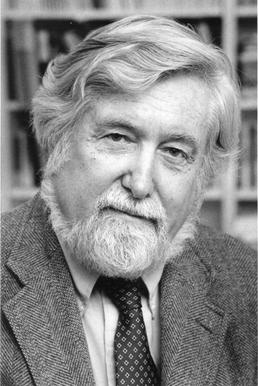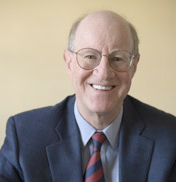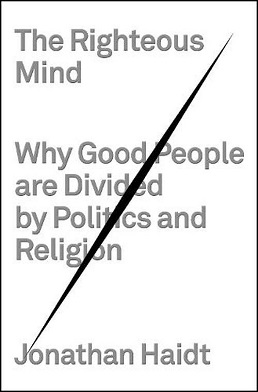Related Research Articles

Anthropology is the scientific study of humanity, concerned with human behavior, human biology, cultures, societies, and linguistics, in both the present and past, including past human species. Social anthropology studies patterns of behavior, while cultural anthropology studies cultural meaning, including norms and values. A portmanteau term sociocultural anthropology is commonly used today. Linguistic anthropology studies how language influences social life. Biological or physical anthropology studies the biological development of humans.

Clifford James Geertz was an American anthropologist who is remembered mostly for his strong support for and influence on the practice of symbolic anthropology and who was considered "for three decades... the single most influential cultural anthropologist in the United States." He served until his death as professor emeritus at the Institute for Advanced Study, Princeton.
Moral psychology is a field of study in both philosophy and psychology. Historically, the term "moral psychology" was used relatively narrowly to refer to the study of moral development. Moral psychology eventually came to refer more broadly to various topics at the intersection of ethics, psychology, and philosophy of mind. Some of the main topics of the field are moral judgment, moral reasoning, moral sensitivity, moral responsibility, moral motivation, moral identity, moral action, moral development, moral diversity, moral character, altruism, psychological egoism, moral luck, moral forecasting, moral emotion, affective forecasting, and moral disagreement.
Arthur Michael Kleinman is an American psychiatrist, social anthropologist and a professor of medical anthropology, psychiatry and global health and social medicine at Harvard University.

William Damon is a professor at Stanford University and senior fellow at Stanford University's Hoover Institution. He is one of the world's leading scholars of human development. Damon has done pioneering research on the development of purpose in life and wrote the influential book The Path to Purpose. Damon has helped design innovative developmental methods such as peer learning. Damon also is known for his studies of effective philanthropy. His current work includes a study exploring purpose in higher education and a study of family purpose across generations. Dr. Damon writes on intellectual and social development through the lifespan. Damon has been elected to the National Academy of Education and the American Academy of Arts and Sciences.
Paul Rozin is a professor of psychology at the University of Pennsylvania. He teaches two Benjamin Franklin Scholars (BFS) honors courses and graduate level seminars. He is also a faculty member in the Master of Applied Positive Psychology program started by Martin Seligman. He is described as the world's leading expert on disgust. His work focuses on the psychological, cultural, and biological determinants of human food choice.
Roy Goodwin D'Andrade was one of the founders of cognitive anthropology.
Cultural psychology is the study of how cultures reflect and shape their members' psychological processes.

Melford Elliot Spiro was an American cultural anthropologist specializing in religion and psychological anthropology. He is known for his critiques of the pillars of contemporary anthropological theory—wholesale cultural determinism, radical cultural relativism, and virtually limitless cultural diversity—and for his emphasis on the theoretical importance of unconscious desires and beliefs in the study of stability and change in social and cultural systems, particularly in respect to the family, politics, and religion. Explicated in numerous theoretical publications, they are empirically exemplified in monographs based on his fieldwork in Ifaluk atoll in Micronesia, an Israeli kibbutz, and a village in Burma.
Psychological anthropology is an interdisciplinary subfield of anthropology that studies the interaction of cultural and mental processes. This subfield tends to focus on ways in which humans' development and enculturation within a particular cultural group—with its own history, language, practices, and conceptual categories—shape processes of human cognition, emotion, perception, motivation, and mental health. It also examines how the understanding of cognition, emotion, motivation, and similar psychological processes inform or constrain our models of cultural and social processes. Each school within psychological anthropology has its own approach.
The Department of Social Relations for Interdisciplinary Social Science Studies, more commonly known as the "Department of Social Relations", was an interdisciplinary collaboration among three of the social science departments at Harvard University beginning in 1946. Originally, the program was headquartered in Emerson Hall at Harvard before moving to William James Hall in 1965. While the name "Social Relations" is often associated with the program's long-time chair and guiding spirit, sociologist Talcott Parsons, many major figures of mid-20th-century social science also numbered among the program's faculty, including psychologists Gordon Allport, Jerome Bruner, Roger Brown, and Henry Murray (personality); anthropologists Clyde and Florence Kluckhohn, John and Beatrice Whiting, Evon Z. Vogt ; and sociologist Alex Inkeles. Other prominent scholars, such as Jerome Kagan and Ezra Vogel belonged to the department early in their careers before it split. Many of the department's graduate students also went on to be major figures in US social sciences during the latter part of the twentieth century; their work tends towards strong interdisciplinary and cross-disciplinary approaches.
Clinical ethnography is a term first used by Gilbert Herdt and Robert Stoller in a series of papers in the 1980s. As Herdt defines it, clinical ethnography
is the intensive study of subjectivity in cultural context...clinical ethnography is focused on the microscopic understanding of sexual subjectivity and individual differences within cross-cultural communities. What distinguishes clinical ethnography from anthropological ethnography in general is (a) the application of disciplined clinical training to ethnographic problems and (b) developmental concern with desires and meanings as they are distributed culturally within groups and across the course of life.

Jonathan David Haidt is an American social psychologist and author. He is the Thomas Cooley Professor of Ethical Leadership at the New York University Stern School of Business. His main areas of study are the psychology of morality and moral emotions.
John A. Lucy is an American linguist and psychologist. His work primarily concerns the relations between language and cognition, especially the hypothesis of linguistic relativity. He is the William Benton Professor in the Department of Comparative Human Development and the Department of Psychology at the University of Chicago. Lucy has worked extensively with the Yucatec Maya language, specializing in the system of noun classification.
Moral foundations theory is a social psychological theory intended to explain the origins of and variation in human moral reasoning on the basis of innate, modular foundations. It was first proposed by the psychologists Jonathan Haidt, Craig Joseph, and Jesse Graham, building on the work of cultural anthropologist Richard Shweder. It has been subsequently developed by a diverse group of collaborators and popularized in Haidt's book The Righteous Mind. The theory proposes six foundations:
Alan Page Fiske is an American professor of anthropology at the University of California, Los Angeles, known for studying the nature of human relationships and cross-cultural variations between them.

The Righteous Mind: Why Good People are Divided by Politics and Religion is a 2012 social psychology book by Jonathan Haidt, in which the author describes human morality as it relates to politics and religion.
Byron Joseph Good is an American medical anthropologist primarily studying mental illness. He is currently on the faculty of Harvard University, where he is Professor of Medical Anthropology at Harvard Medical School and Professor of Cultural Anthropology in the Department of Anthropology.
A functional account of emotions posits that emotions facilitate adaptive responses to environmental challenges. In other words, emotions are systems that respond to environmental input, such as a social or physical challenge, and produce adaptive output, such as a particular behavior. Under such accounts, emotions can manifest in maladaptive feelings and behaviors, but they are largely beneficial insofar as they inform and prepare individuals to respond to environmental challenges, and play a crucial role in structuring social interactions and relationships.

Robert Alan Levine is an American anthropologist best known for his multidisciplinary and cross-cultural work on child development. He spent much of his academic career at Harvard University in the Graduate School of Education, where he has been emeritus professor since 1998.
References
- ↑ VIAF: 61641385
- 1 2 "Richard Shweder" Archived 2013-09-25 at the Wayback Machine , Department of Comparative Human Development, University of Chicago.
- ↑ Erin G. Edwards, Controversial psychology professor to speak at the Chicago Cultural Center, archived from the original on 2012-03-27
- ↑ Shweder, Richard; Much, Nancy; Mahapatra, Manamohan; Park, Lawrence (1997). "The "big three" of morality (autonomy, community, divinity) and the "big three" explanations of suffering.". In Brandt, Allan; Rozin, Paul (eds.). Morality and Health. Routledge. pp. 119–169.
- ↑ Jensen, Lene Arnett, ed. (2016). Moral development in a global world : research from a cultural-developmental perspective. Cambridge University Press. ISBN 9781316635674.
- ↑ Haidt, Jonathan; Joseph, Craig (September 2004). "Intuitive ethics: how innately prepared intuitions generate culturally variable virtues". Daedalus. 133 (4): 55–66. doi: 10.1162/0011526042365555 . S2CID 1574243.
- ↑ Shweder, Richard A. (27 October 2007). "Opinion | A True Culture War". The New York Times.
- ↑ History & Archives: AAAS Prize for Behavioral Science Research